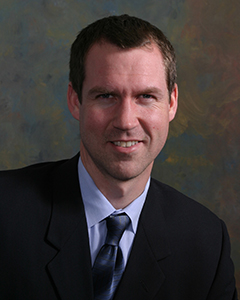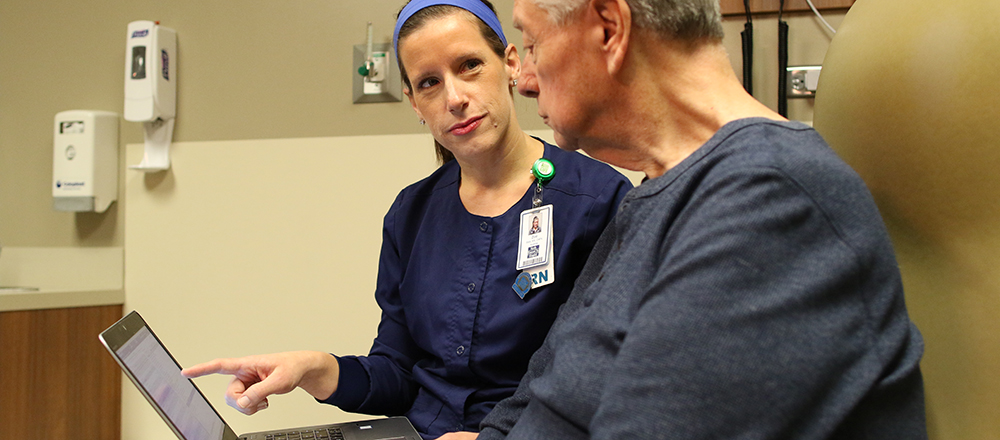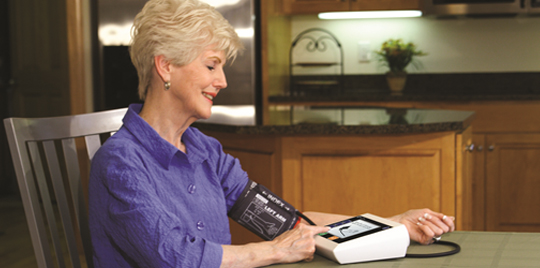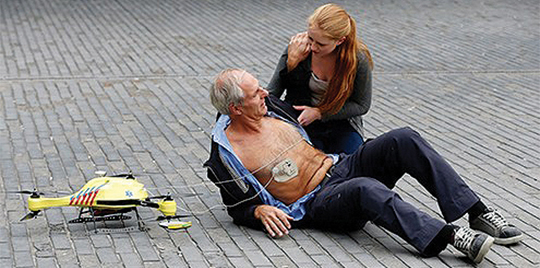Remote Heart Failure Monitoring Reduces Hospitalizations
September 28, 2021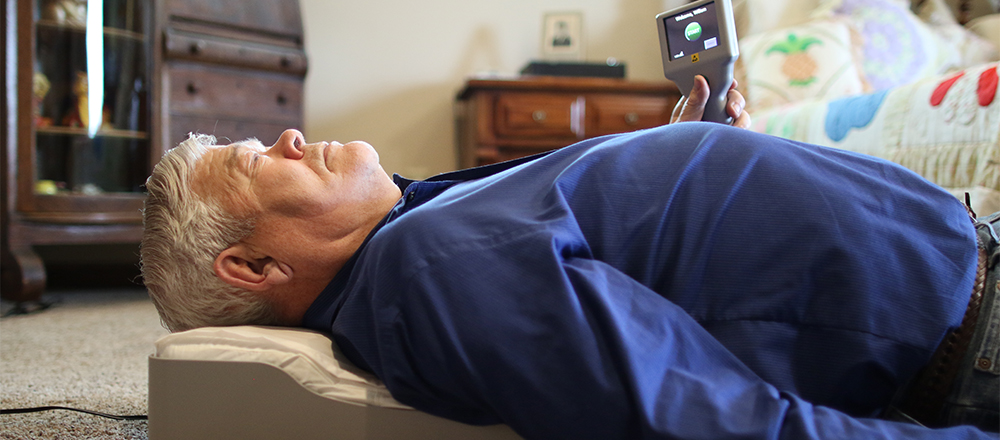
Living with heart failure is difficult. The chronic condition can mean an array of lifelong medications. Underlying problems – chronic obstructive pulmonary disease, diabetes, high blood pressure, kidney disease, obesity and sleep apnea – often lead to hospitalizations. North Kansas City Hospital offers a device – the CardioMEMS™ HF System – to help Heart Care Clinic patients better manage their HF and avoid hospitalizations.
Contact Us
For more information, contact the NKCH Heart Care Clinic at 816.691.3095
NKCH began implanting the devices in 2018. We have since achieved a 54% reduction in HF-related hospital readmissions.
How the CardioMEMS Works
NKCH is the only hospital in the Northland using the remote monitor to tailor HF treatment. The key piece of the remote monitoring system is a sensor that is somewhat larger than a paper clip. The sensor is implanted in the pulmonary artery to track heart pressure readings and fluid retention levels.
Each day, the patient lies on a special pillow that interacts with the sensor and wirelessly sends real-time data to the Heart Care Clinic. A team member reviews the information on a secure website. If the medication or treatment plan needs to change, the clinic calls the patient. If pressure readings fall outside of specific ranges, the clinic receives an automated alert.
We combine our clinical judgement and the data we gain from the patient’s remote monitor so we can more accurately provide treatment. Patients with heart failure are the most likely to be rehospitalized. With CardioMEMS they are the least likely to come back. This is the single most effective tool to reduce hospitalizations in our heart failure patients.
Remotely Tracking HF Changes
By measuring subtle pulmonary artery pressure changes, we can spot fluid volume increases seven to 10 days before a patient experiences signs or symptoms.
We can then adjust their medications over the phone or bring them in for IV treatments, if needed. When these pressures climb, we know the patient will be in congestive heart failure in about two weeks. With CardioMEMS, we can catch potential problems early, take action, and help patients with heart failure avoid the emergency room or another hospital stay.
Tailored HF Treatment
The device also allows us to tailor treatment to the patient’s underlying condition.
For example, it differentiates the causes of shortness of breath. If a patient with lung disease has bad numbers, we know the cause is congestive heart failure. If their numbers are good, we know to look at COPD, a bronchitis exacerbation or another issue. For patients with kidney disease, we can tailor their diuretics more carefully.
NKCH Heart Care Clinic
With physician oversight, the Heart Care Clinic provides patients with a team of nurses, nurse practitioners, dietitians, social workers and home health providers who focus solely on caring for people with heart failure and helping them improve their health, capabilities and quality of life.
Explore More
Living Successfully With Heart Failure
Heart Disease Hogwash
Remote Monitoring for Heart Failure Helps Bill Travel the World
